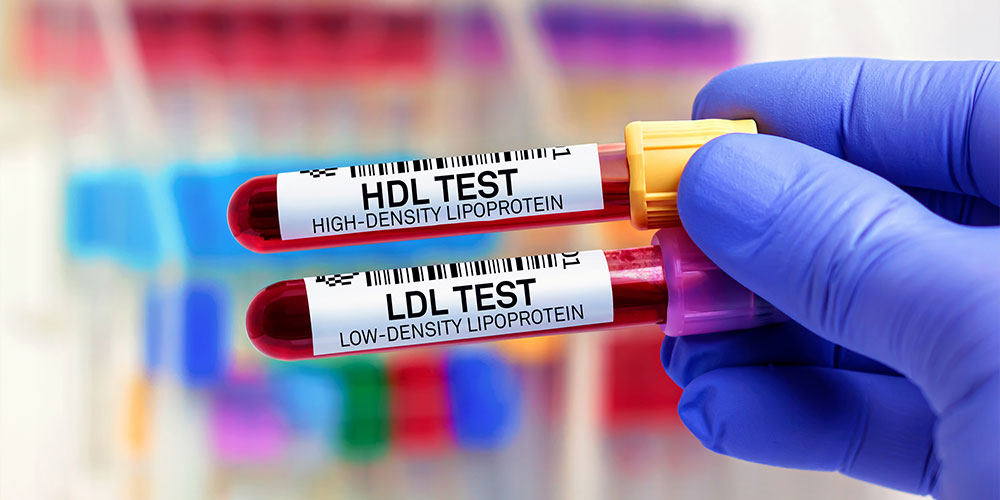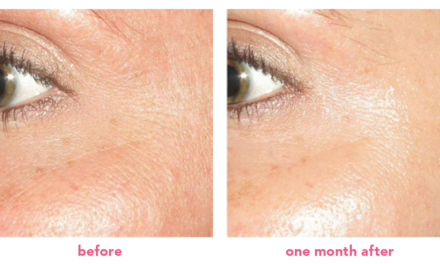By Dharmesh Patel, MD
Living in the Mid-South, maintaining a healthy lifestyle is particularly essential for overall well-being as we have some of the highest rates of cardiovascular disease and obesity in America.
One key aspect of healthy living is managing cholesterol levels in the body. Cholesterol is a waxy, fat-like substance found in the cells of our body. While it is necessary for the production of hormones, vitamin D, and digestive juices, high levels of cholesterol can lead to serious health problems, including heart disease. This article explores the importance of healthy living in managing cholesterol levels and provides practical tips on achieving and maintaining a healthy lifestyle.
Adopting a balanced and nutritious diet is crucial for managing cholesterol levels. A diet rich in fruits, vegetables, whole grains, and lean proteins can help lower cholesterol. Foods high in saturated and trans fats, such as fatty meats, fried foods, and processed snacks, should be limited or avoided altogether. Instead, opting for healthier fats found in avocados, nuts, and olive oil can positively impact cholesterol levels. Additionally, incorporating foods high in soluble fiber, such as oats, legumes, and fruits like apples and oranges, can help reduce cholesterol absorption in the body and lower cholesterol levels by 15-20%.
Triglycerides are fats particularly reflective of diet and alcohol consumption. Ideally, their level should be less than 150, but in this community, it is rare. Triglycerides are an independent risk factor for heart disease.
It is very important to remember that 75% of cholesterol synthesis is made in the body, and only 25% of cholesterol is due to diet. This is why “diet and lifestyle alone“ does not fix all in most patients.
We now have different therapies that help lower cholesterol. Statins are generally the first therapy provided and can lower bad cholesterol (LDL) by about 30-55%. Rarely do patients get muscle aches from statins (6%) but the perception by patients is different. We have other medicines which are not statins. There are therapies that reduce the absorption of cholesterol and reduce LDL by 20%. In the last five years, injection therapies have been available, which can be given every two weeks and reduce the LDL by 63%. More recently, the innovation of sIRNAs were introduced, which reduces LDL by 50%, but the injection is given only twice a year. Both injection therapies do not increase the risk of muscle aches.
Regular physical activity is another vital component of a healthy lifestyle and cholesterol management. Engaging in at least 150 minutes of moderate-intensity aerobic exercise per week, such as brisk walking, swimming, or cycling, can help raise high-density lipoprotein (HDL) cholesterol, also known as “good” cholesterol, and lower low-density lipoprotein (LDL) cholesterol, or “bad” cholesterol. Exercise also aids in maintaining a healthy weight, which is essential for overall cardiovascular health.
In addition to a healthy diet and regular exercise, managing stress levels is important for maintaining healthy cholesterol levels. Chronic stress has been linked to higher levels of LDL cholesterol and lower levels of HDL cholesterol. Engaging in stress-reducing activities such as meditation, yoga, or spending time in nature can help lower stress levels and promote overall well-being. Adequate sleep is also crucial for managing stress and maintaining a healthy lifestyle. Lack of sleep has been associated with higher cholesterol levels and increased risk of heart disease.
Furthermore, avoiding tobacco smoke and limiting alcohol consumption is essential for healthy living and managing cholesterol levels. Smoking damages blood vessels and lowers HDL cholesterol, making it easier for LDL cholesterol to build up in the arteries. Similarly, excessive alcohol consumption can lead to high cholesterol levels and other health problems. It is recommended to quit smoking and limit alcohol intake to moderate levels, which means up to one drink per day for women and up to two drinks per day for men.
Lastly, regular check-ups with healthcare professionals are crucial for monitoring cholesterol levels and overall health. Blood tests can determine cholesterol levels and identify any potential risks. Based on the results, healthcare professionals can provide personalized advice and prescribe medication if necessary.
It is important to understand that cholesterol goals are different for different populations. Patients who have had a heart attack or stroke or have stents in the heart, neck, and/or legs have goals that are significantly lower than those of the general population. People with diabetes are another group.
We also now have additive tests such as a calcium score scan, which are easy to do (10 seconds in a CT scanner) and cost around $99. This test alone can help detect heart disease and is an extremely useful test if both positive or negative.
Healthy living plays a vital role in managing cholesterol levels and reducing the risk of heart disease. A balanced diet, regular exercise, stress management, avoiding tobacco smoke, limiting alcohol consumption, and regular check-ups are key components of a healthy lifestyle. By adopting these practices, individuals can take control of their cholesterol levels and improve their overall well-being. Remember, small changes in daily habits can lead to significant long-term benefits. So, let’s prioritize our health and make conscious choices towards a healthier and cholesterol-friendly lifestyle.
We at Stern Cardiovascular Foundation have recently opened the first specialized Lipid/Cholesterol clinic in Memphis and surrounding areas. We are accepting patients who have a history of high cholesterol, including all the different therapeutic options. For more information call 901.271.1000.







